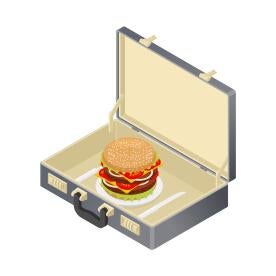-
As previously reported on this blog, the World Health Organization (WHO) released a plan in May 2018 aimed at eliminating industrially-produced trans fatty acids from the global food supply. On April 26, 2019, WHO Director-General Dr. Tedros Adhanom Ghebreyesus issued a statement about that plan. He said in the statement, “The elimination of industrially-produced trans fat from the global food supply is a WHO priority and a target in the 13th General Programme of Work (GPW), which will guide the WHO through 2023.” To meet this target, WHO called on the fats, oils, food, and food service industry to commit to the following:
-
Reformulate foods to eliminate industrially-produced trans fat: Set, commit to, and meet trans-fat elimination targets by 2023 or earlier for all products across global product lines, in line with the WHO recommendation for all food categories (
-
Label trans fat content: Implement trans fat labelling on any pre-packaged food.
-
Increase supply of healthier fats and oils: Increase the supply of replacement alternatives low in saturated fat.
-
Evaluate commitments: Support the implementation of an independent evaluation to monitor the progress and achievement of commitments made, including disclosing annually the company volume of production of industrially-produced trans fat and country-specific quantity of the volume of sales.
-
-
On May 7, 2019, the International Food & Beverage Alliance (IFBA) announced that twelve global food and beverage companies pledged to meet WHO’s goal to phase out industrially-produced trans fat from their products (or to not exceed 2 grams of industrially-produced trans fat per 100 grams of fat or oil). Additionally, IFBA stated that its members “will seek wherever possible to avoid that reformulation efforts to meet this [industrially-produced trans fat] commitment result in increases in saturated fat content.” WHO Guidelines recommend that adults and children reduced their intake of saturated fatty acids to less than 10% of total energy intake and their intake of trans fatty acids to less than1% total energy intake.
-
In the U.S., the Food and Drug Administration (FDA) issued its final rules to implement changes to nutrition labeling requirements on May 20, 2016. Fat is among the items addressed in the new nutrition labeling requirements that are currently scheduled to take effect on January 1, 2020 for manufacturers with $10 million or more in annual foods sales and on January 1, 2021 for manufacturers with less than $10 million in annual food sales. More specifically, the final rule on Food Labeling: Revision of the Nutrition and Supplement Facts Label requires that the amount of saturated fat and trans fats per serving is listed on the current label and will be required on the new labels.
Food Companies Agree to Phase Out Industrially Produced Trans Fat by 2023
Tuesday, May 14, 2019



 i
i


